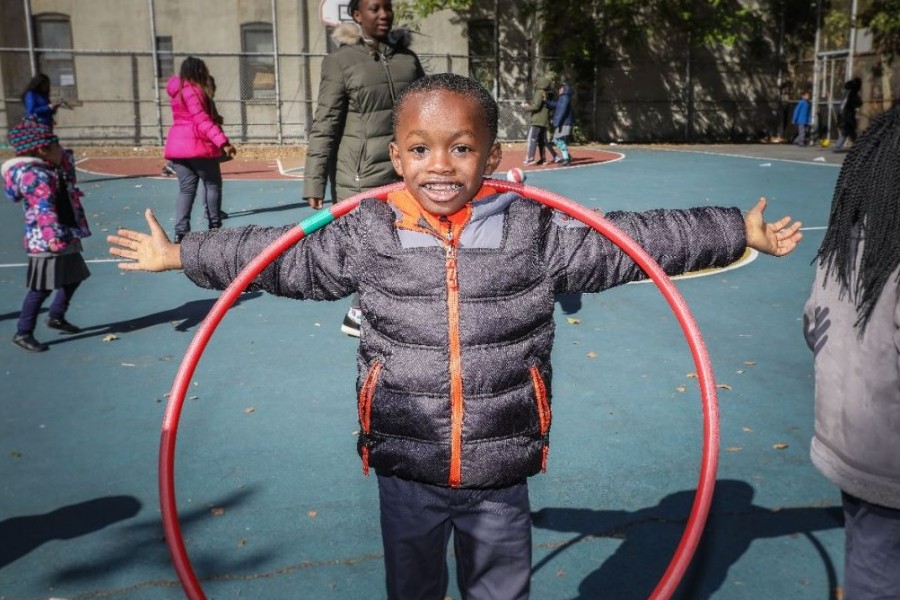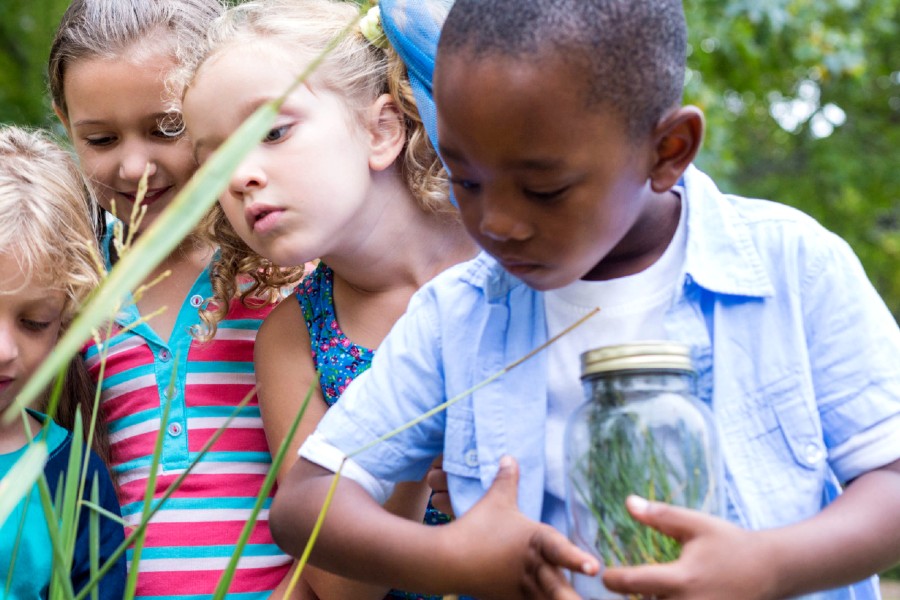
Life with kiddos can be “a little” chaotic. From doctor’s appointments, music, and sports practices to those sleepless nights, it’s easy to feel overwhelmed managing it all.
Don’t worry, you’re doing the best you can!
Here are a few ideas on small things your family can do to support kids’ physical and mental health throughout the year.
1. Family Movement Time
Movement can be fun! Engaging in physical activity can support both physical and mental health. Many children get the majority of their exercise through play, but it can be helpful to plan family movement time throughout the week as well.
Ideas for family movement time:
- Have mini dance parties and try out funky choreography!
- Do playful animal workouts. Try the crab walk or the kangaroo hop around the house.
- Go for a nice walk around the neighborhood in Harlem.
- Play sports together. Head to the nearest school or park and kick a ball around or play Hola Hoop!
Whether your family prefers high impact or low, there are many fun ways to get your bodies moving throughout the week!
2. Food as Fuel
Make meal prep into family fun time! Eating habits contribute to both physical and mental well-being.
Whenever possible, involve your kiddos in your family’s cooking routine.
Ideas for fuel food:
- Provide your child with age-appropriate tasks they can help with. Maybe they can whisk the eggs, measure cups of water, or help set the table!
- Shop together at the grocery store. Encourage kids to help pick out lots of fruits and vegetables!
- Learn about the different food groups and flavors together.
3. Mindfulness Moments
Practice mindfulness together as a family! For many family, life can get pretty chaotic throughout the week. It can be helpful to choose a time during the week for moments of mindfulness.
This practice helps calm anxiety, build trust, and relieve tension.
Ideas for mindful moments:
- Try out yoga for kids.
- Do breathing exercises together.
- Write down the things you’re grateful for.
4. Sleep, Sleep, Sleep
Sleep is crucial for physical and mental well-being. Many parents know the struggle of getting their kiddos to bed for a full night’s rest. Try setting up a special nightly routine and stay as consistent as possible.
Ideas for a nightly routine:
- Brush your teeth together. Add a little fun by making it a competition… who can brush the longest?
- Listen to a bedtime playlist to get into a calm, sleepy mood.
- Snuggle up and read bedtime stories.
- Dream starters! Ask your child what they want to dream about when they fall asleep. Encouraging them to be excited about what they can dream about may help them feel excited about… well… finally falling asleep!
5. Screen Time Limits
Screen time limits help keep kids from getting too sedentary. Too much screen time can be an issue physically and mentally.
Encourage children to play outside before using a device and set clear rules for when and where kids can have screen time.
Ideas for screen time limits:
- Set parental control functions on apps so that kids get a notification when their time is up.
- Have alternative, fun activities ready for kids to do when screen time is up!
- Kids mimic the actions of their parents. You can show your kids how you limit your own screen time!
6. Open Communication
Growing up can be tough. Kids will likely deal with various physical or mental issues at some point in their lives. It’s helpful to let your kids know that you are always there for them to talk to about what is going on in their life. When kids feel safe talking about their worries and concerns, they can be better equipped to deal with the challenges that life throws at them.
Ideas for open communication:
- Allow space for kids’ feelings of frustration, worry, grief, fear, etc. Be there to talk through challenging emotions with them.
- Teach resilience! Setbacks happen, and people make mistakes. Help your child get back up when they fall down or say sorry when they hurt someone’s feelings.
- Remind your child that you’re always there for them. When kids know that they won’t be judged or get in trouble for telling the truth, they’ll feel safe opening up for support.
Do you have any ideas to support children’s mental health? Please let us know in the comments section below.
- The Rise And Fall Of 65 West 128th Street: A Microcosm Of Harlem’s History
- From Rainforest To Asphalt: Amazon’s Sustainability Report Struggles To Navigate Harlem’s Future
- Broom Drill In A Harlem Church: A Unique 1882 Tradition
- Wells Fargo Shares Economic Impact From Open For Business Fund
- Harlem Rallies For Kamala Harris: A Historic Gathering Of Black Women Leaders
Become a Harlem Insider!
By submitting this form, you are consenting to receive marketing emails from: Harlem World Magazine, 2521 1/2 west 42nd street, Los Angeles, CA, 90008, https://www.harlemworldmagazine.com. You can revoke your consent to receive emails at any time by using the SafeUnsubscribe® link, found at the bottom of every email. Emails are serviced by Constant Contact









